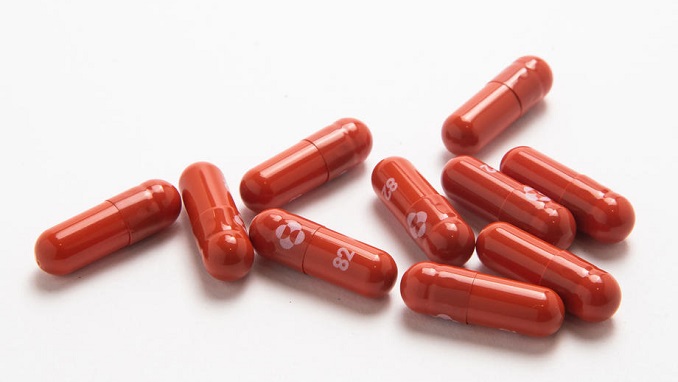
The first pills against Covid have been authorized in America.
Pfizer became the first company to have an antiviral pill authorized by the U.S. Food and Drug Administration (FDA) this week. The Pfizer pill, named Paxlovid, is authorized for adults and children aged 12 and older who test positive for Covid and face the highest risks of hospitalization.
Merck’s antiviral pill became the second pill authorized to take at home. The FDA Thursday authorized Merck’s pill.
The long-awaited pills come as Omicron surges across the U.S., sending cases, hospitalizations and deaths on the rise. Health officials are warning that Omicron is leading to another wave of Covid infections, and could soon overwhelm hospitals. Both pills are expected to be effective against omicron.
Pfizer is expected to be the preferred option because it showed milder side effects and superior effectiveness in its trials. It provides a nearly 90 percent reduction in hospitalizations and deaths.
Paxlovid is the faster method to treat Covid infections, but there will be extremely limited initial supplies across the country. Previously authorized drugs before the pills required IVs or injections. Both of these pills are taken orally, which will make them far easier and more available option. The pills can be taken at home before the illness makes people so sick that they need to go to the hospital.
Pfizer has 180,000 treatment courses available globally, and an estimated 60,000 to 70,000 — nearly half — will be allocated to the U.S. By the end of January, Pfizer expects to have 250,000 available in America.
Merck signed an agreement with the government to supply 3.1 million courses of molnupiravir.
The FDA has emphasized that the pills are not for pre-or post-exposure prevention of the disease, and it is not whatsoever a substitution for vaccines. Vaccinations work to prevent the disease, and the pills work to treat it after infection.




Be the first to comment